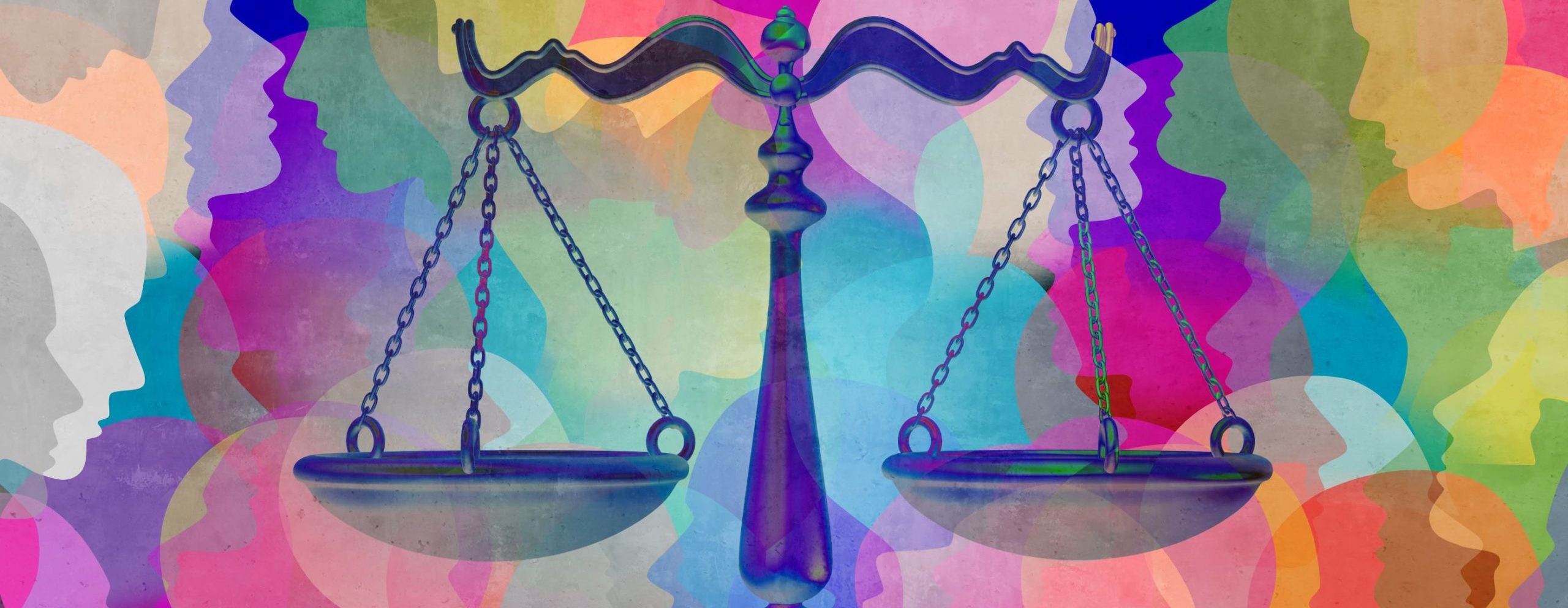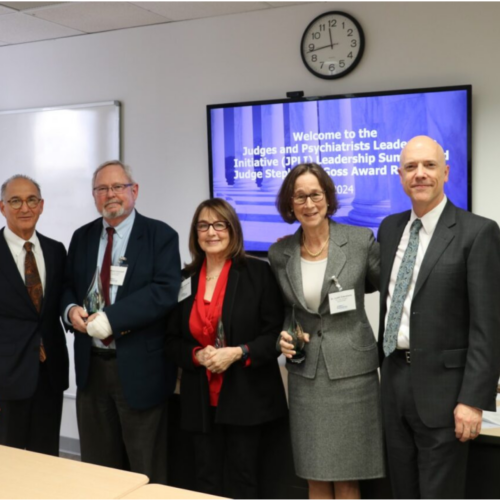
The public outcry and awakening consciousness spreading across the nation over the last several weeks flows from recent tragic reminders of the American legacy of racism that has never been adequately addressed. The reality is, the systems of our country clearly are not working right now and have not been working well for many members of our communities for a long time.
Some might be tempted to think this means there is nothing that can be done. But as judges and psychiatrists, we know that our words and actions have power. The decisions we make every day impact the quality of life and freedom of people across the country, whether it is the patients whose treatment we shape or the defendants whose liberty we determine. Our opinions as experts have considerable influence as we sit at tables and in settings where important decisions impact not just individuals, but communities and states. With this power and influence, we also have a responsibility to continually attend to the need for change in society, obtain the best available information, and commit to doing the work needed to effect substantive change.
Looking back through our country’s history and witnessing recent tragic events, we are reminded of unacceptable inequities that exist in our systems of justice and health. We see communities of color disproportionally suffering from disease and economic recession while members of these communities are disproportionally also involved in the criminal justice system. We also know that, in our professional roles as judges and psychiatrists, we serve as leaders in systems with many challenges, including inherent inequities and racism built into their structures. This structural racism includes even inequities in the racial composition of the judiciary and in the field of psychiatry. Now, looking forward, we recognize that witnessing and forming intention without action is not enough. As individual professionals and as leaders in our systems and communities, we must do more.
While the Judges and Psychiatrists Leadership Initiative has previously emphasized the importance of addressing racial inequalities in our work, today we commit to doing more intentional work to advance equitable health and justice outcomes, including:
- Systematically examining our policies, procedures, and outcomes, and committing not only to identifying racial inequities, but also taking concrete steps to address them.
- For example, at least two of our states, Florida and Illinois, require problem-solving courts to implement policies to prevent unfair exclusion and unequal outcomes based on race, socio-economic status, and sexual orientation.
- Raising issues of racial equity in the settings where we work, such as:
- Drawing attention to the overrepresentation of members of communities of color in the criminal justice system.
- Advocating for the inclusion of culturally and structurally informed practices.
- Creating ways for promoting racial diversity and inclusion amongst our ranks through the channels available to us, such as mentorship, sponsorship and the makeup of the groups that we convene.
- Seeking input from and listening to impacted communities when developing policy recommendations and initiatives.
- Enhancing the content of our judges’ training that emphasizes racial equity and understanding implicit bias.
- Identifying and advocating for policies that include equitable health and justice outcomes as a core component.
- Advocating that the success of policies will be measured, in part, based on whether their outcomes are equitable across racial lines.
We are all affected today by the presence of stigma, inequality and injustice in our communities. In his letter from the Birmingham jail in 1963, Dr. Martin Luther King, Jr. reminded us that “Injustice anywhere is a threat to justice everywhere. We are caught in an inescapable network of mutuality, tied in a single garment of destiny. Whatever affects one directly, affects all indirectly… We may have all come on different ships, but we’re in the same boat now.”
Let us take heed of Dr. King’s reminder. With it, we are committed to learning and identifying new opportunities to build on this intentional work. And we look forward to collaborating with all of you in our mutual efforts towards building systems that ensure better, fairer outcomes for all.
The Judges and Psychiatrists Leadership Initiative Committee includes:
Dr. Michael Champion, Medical Director, Adult Mental Health Division, Hawaii Department of Health
Hallie Fader-Towe, Program Director, Behavioral Health, the CSG Justice Center
Honorable Steven Leifman, Associate Administrative Judge, 11th Judicial Circuit Court of Florida
Christopher Seeley, Program Director, School and Justice Initiatives, American Psychiatric Association Foundation
Dr. Sarah Y. Vinson, Child and Adolescent, Adult, and Forensic Psychiatrist, Lorio Psych Group
Honorable Kathryn Zenoff, Appellate Judge, Second District of Illinois











